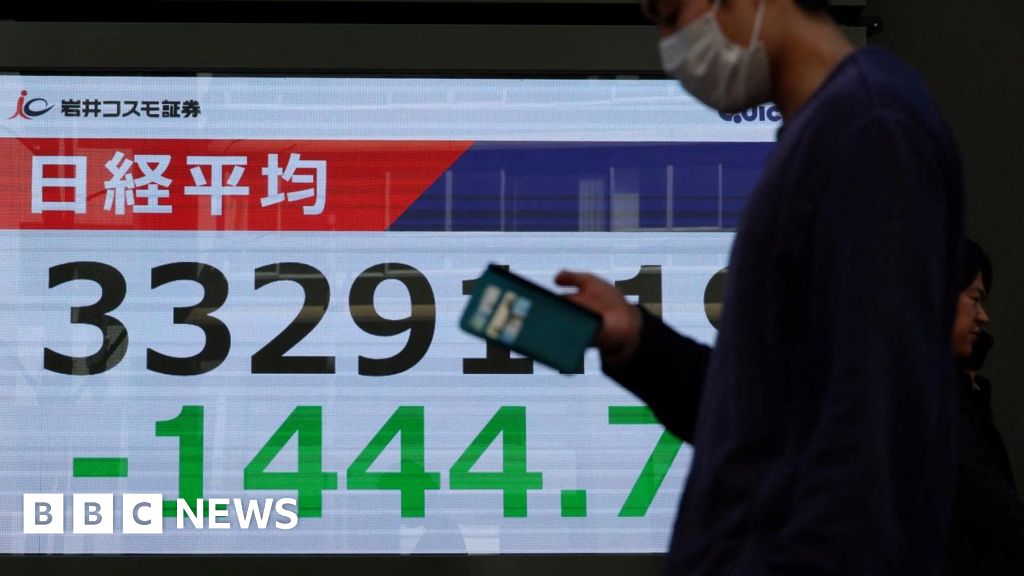Gender-based violence has impacted an estimated 736 million women globally, thus ending it must be a key aspect to a country’s domestic and foreign policy. Every year from November 25 to December 10, advocates and governments across the world mark 16 Days of Activism Against Gender-Based Violence, to highlight the devastating impact of gender-based violence and various efforts undertaken to end it. However, it isn’t enough to focus on 16 Days or address this as a domestic issue separate from the issues of global security. Using a feminist foreign policy lens clarifies this linkage because it explicitly expands the notion of security and centers on gender equality as both a strategy and goal of foreign policy.
Gender-based violence is not the same as violence against women and girls, though the phrases are sometimes used interchangeably. The phrase ”gender-based” acknowledges that the violence is based on gender norms, control, and unequal power relations. Although women, men, girls and boys can be equally affected, among them the most affected are women and girls. Across the globe, one in three women experiences gender-based violence and the number is even higher in fragile and conflict affected environments. Girls are at a particular risk as 25% of adolescent girls have reported abuse by an intimate partner.
There are many aspects to gender-based violence, such as rape, intimate partner violence, conflict-related sexual violence, early and forced marriage, honor killing, emotional abuse, and online harassment. One such extreme case recently riveted France and much of the world, was the case of Gisèle Pelicot, whose husband, Dominique Pelicot, was convicted of raping and drugging her for almost ten years. He also invited dozens of other men into their home to rape her while she was unconscious. This horrifying case is one among many examples of gender-based violence, which reflects on the underlying social norms and human cost.
Acts of gender-based violence are part of human rights violations which is reflective of gender inequality and embedded patriarchal gender norms in our society. Gender-based violence exposes individuals and communities to increased instability and fragility, making it harder for women and girls to fully participate in society and public life, thus robbing them of their talents and skills. Gender-based violence has numerous negative impacts, it limits the earning potential of individual survivors as they are often unable to work and prefer to miss work more often. It decreases the educational achievements and increases the financial burden for medical, legal services, and relocation expenses. This gets further translated into increased physical injury, disability and death (such as by homicide, suicide etc.).
Gender-based violence is also a foreign policy and national security issue as along with every dimension of gender inequality, it has a direct impact on, and perpetuates, social fragility which leads to the fraying of stability and security. Countries with high levels of gender equality are less likely to use force first in a conflict, and conversely, those with high levels of gender inequality are more likely to initiate or engage in conflict. Scholars argue that this is because social norms of equality tend to create conditions for the use of persuasion and diplomacy, not violence, to resolve conflict.
Further, gender-based violence drags down economic growth, from central to stability. Lack of economic opportunity frequently leads to political instability as countries with higher levels of economic development have more stable security environments. Intimate partner violence – one of the most prevalent forms of gender-based violence – has costed 5.2% of the global GDP. The McKinsey analysis mapped data in 95 countries, as in the “full potential” scenario, if women participated in their country’s economy identically to men, global GDP would increase to $2.8 trillion, or 26%, to global GDP. This is roughly equivalent to the combined economies of China and the US in 2015. McKinsey also found “virtually no countries with high [social] gender equality but low gender equality in work.” Similarly, the Organization for Economic Cooperation and Development estimated that in 2017, gender discrimination led to a loss of 7.5% in global income.
Despite this data, gender-based violence is often seen as a domestic issue with little impact beyond those immediately impacted. Using the feminist foreign policy framework can change that perception and ensure that addressing gender-based violence becomes central to foreign policy and national security. Feminist foreign policy integrates the goal of gender equality across national security and foreign policy. This framework re-examines traditional approaches to foreign policy and questions the assumptions about international relations, power, security, war and conflict resolution. Some of these assumptions are gendered, including the belief that the human dimensions of security are secondary to geopolitics, which should guide the foreign policy and national security decisions. Feminist foreign policy frameworks explicitly acknowledge that gender equality decreases conflict, builds more secure societies, and ensures that a full range of talent and input is used to solve problems.
Approximately 15 countries have either a feminist development policy and/or a feminist trade policy. All are different based on context, but they share certain key characteristics, which includes, gender equality as a goal and strategy; a broadened definition of security; , the elevation of diverse voices; and a desire to address historic power imbalances. Redefining what constitutes security is core to feminist foreign policy as the framework put forward the issues which disproportionately impact women and girls, and which must be considered for a country to develop its foreign policy and national security strategy. This not only includes gender-based violence, but also other non-traditional security issues such as climate change, girls’ access to education, maternal and reproductive health, and child marriage which affects the country’s foreign policy.
Feminist foreign policy means moving away from the traditional view of security, which is only about defending state borders, usually by military means, towards focusing on all aspects of human security. This broadened definition of security means more than the absence of conflict. It recognizes that human security concerns – personal safety, climate change, natural disasters, persistent poverty, food insecurity and pandemics – are not secondary to ensuring stability and security but are fundamental to it. Threats to human security are broad and often intertwined with economic security, food security, health security, environmental security, personal security, community security, and political security.
For example, climate change is not only an environmental phenomenon but also a gender and security issue, highlighting the link between myriad issues which are not traditionally seen as important in the traditional security sphere. The UN estimates that 80% of the people displaced by climate change are women and children, who are disproportionately at a higher risk of gender-based violence . Women and girls experience gender-based violence during displacement and in camps, where they are vulnerable to assault, human trafficking and forced marriage. As a result of climate related shocks, girls are forced into marriages and are moreover traded for food.
“Bride price” is another example of how non-traditional issues affect security. Valerie Hudson and Hilary Matfess (2018) have outlined how the practice of a groom’s family paying a bride price to future in-laws has far reaching impacts. It can prevent men from marrying, mainly due to the high cost, decreasing men’s societal connections, and increasing their likelihood of joining criminal or terrorist groups, to earn funds for bride price, thus exacerbating the state fragility. For men in these societies, marriage is central to status as community members and ability to have, as Hudson and Matfess characterize it, a “significant voice in the male collective”.
In conflict settings, civilians are exposed to heightened levels of conflict-related sexual violence. Both the state and non-state actors target civilians with rape, gang rape and abductions which exacerbates the already fragile environment. Conflict-related sexual violence also adds to increased displacement and fragility, driving competition for scarce resources. This linkage between conflict-related sexual violence and security has been recognized by the UN Security Council Resolution (UNSCR) 1325 and UNSCR Resolution 1820.
In broadening the definition of security, most countries with a feminist foreign policy emphasize on the importance of women’s equitable access to economic opportunity. For instance, Sweden and Canada have developed feminist trade policies, while Canada, France and Germany have reimagined development assistance with a feminist lens. Feminist foreign policy is a vehicle to ensure that human aspects of security are well understood as an integral part of a nation’s security and foreign policy. In an ever challenging and changing world, it is imperative for policy makers to take into account the entire context and set of issues involved when making their decisions. Gender is not an add-on, but rather a key to understand the myriad challenges which we collectively face. Incorporating it is essential to ensuring the deployment of the most effective solutions.

 Movie
Movie 3 months ago
108
3 months ago
108 





![Presidents Day Weekend Car Sales [2021 Edition] Presidents Day Weekend Car Sales [2021 Edition]](https://www.findthebestcarprice.com/wp-content/uploads/Presidents-Day-Weekend-car-sales.jpg)



 English (United States)
English (United States)